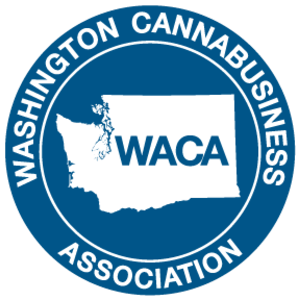The Washington CannaBusiness Association (WACA) hosts an annual conference in the fall or winter intended as a preview of the upcoming Washington State legislative session.
Legislators
- Chris Gildon, Washington State Senator
- Karen Keiser, Washington State Senator
- Curtis King, Washington State Senator
Ann Rivers, Washington State Senator- Derek Stanford, Washington State Senator
- Kelly Chambers, Washington State Representative
- Sam Low, Washington State Representative-elect
